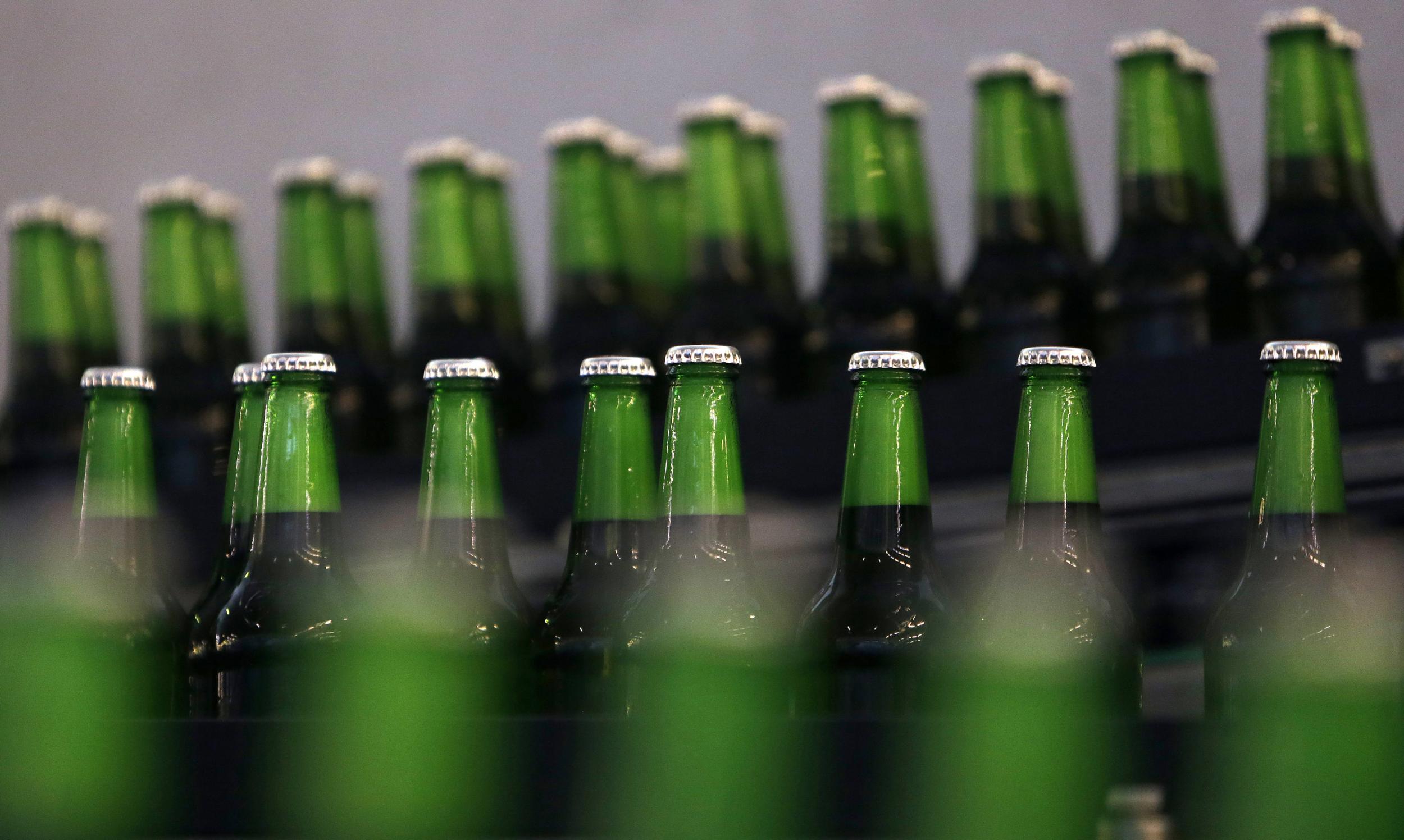Budweiser switches to renewable energy for US brewing
Moving to renewables from fossil fuels will correspond to taking 48,000 cars off the road every year

Your support helps us to tell the story
From reproductive rights to climate change to Big Tech, The Independent is on the ground when the story is developing. Whether it's investigating the financials of Elon Musk's pro-Trump PAC or producing our latest documentary, 'The A Word', which shines a light on the American women fighting for reproductive rights, we know how important it is to parse out the facts from the messaging.
At such a critical moment in US history, we need reporters on the ground. Your donation allows us to keep sending journalists to speak to both sides of the story.
The Independent is trusted by Americans across the entire political spectrum. And unlike many other quality news outlets, we choose not to lock Americans out of our reporting and analysis with paywalls. We believe quality journalism should be available to everyone, paid for by those who can afford it.
Your support makes all the difference.Budweiser said it has switched all its US brewing to renewable electricity and is adding a clean energy logo to its labels as part of a global shift to green power by its parent company AB InBev.
A “100 per cent renewable electricity” symbol will be added to US bottles and cans, Budweiser said, adding it expects to lift sales of one of America’s top beers following a dip.
AB InBev, the world’s biggest brewer, is one of more than 100 multinational firms to have committed to use renewable power to combat pollution and climate change under the Paris accord.
“Beer has been around for 3,000 years – we would like that to continue for another 3,000 years,” said Brian Perkins, vice president of global marketing for Budweiser.
Since the start of this year Budweiser has bought power equivalent to its US brewing demands from Enel Green Power’s 300 megawatt-capacity Thunder Ranch Wind Farm in Oklahoma.
Tony Milikin, chief procurement and sustainability officer of AB InBev, said that consumers were often rightly sceptical about environmental pledges by big companies.
“Here you see it on the label. That adds confidence,” he said from the World Economic Forum in Davos, adding that the cost of the electricity was not more than from other sources.
AB InBev will widen the logo to other markets and offer it to other companies. It is also trying to cut emissions in areas ranging from growing hops to transporting beer to shops.
About 41 million Budweiser beers are sold every day worldwide, and switching brewing to renewables from fossil fuels will correspond to taking 48,000 cars off the road every year.
Last March, AB InBev committed to obtain 100 per cent of purchased electricity for brewing from renewables by 2025. It expects to reach a rate of 31 per cent this year.
In the third quarter of 2017, Budweiser revenues dipped 2.2 per cent worldwide, despite gains in non-US markets, AB InBev said.
Budweiser, which calls itself the King of Beers, reckons consumers will embrace the logo despite US President Donald Trump’s push to develop fossil fuels and his doubts that human activities are the prime cause of climate change.
“We’ve talked to beer drinkers in multiple countries – they roundly agree that climate change is a big issue,” Brian Perkins said.
Microsoft, Starbucks and Marks & Spencer were among major companies to have achieved 100 per cent renewable energy by the end of 2016, according to The Climate Group, a non-profit organisation which oversees pledges. The group welcomed Budweiser’s shift.
Reuters
Join our commenting forum
Join thought-provoking conversations, follow other Independent readers and see their replies
Comments